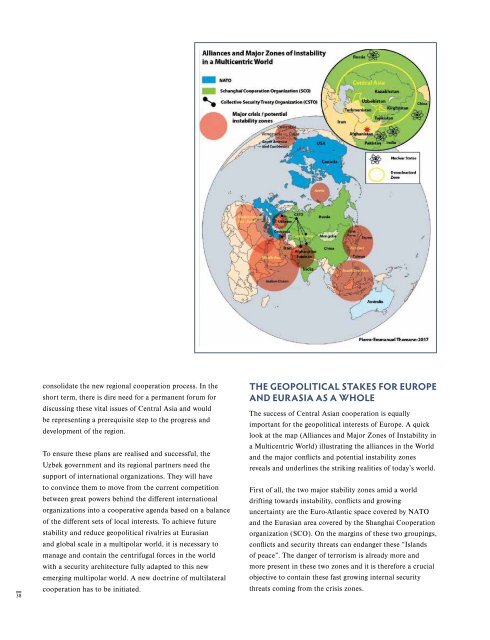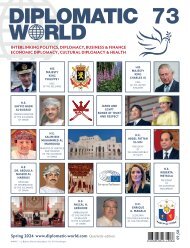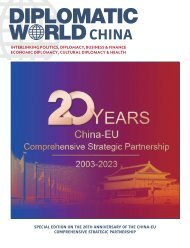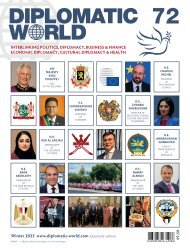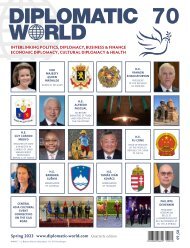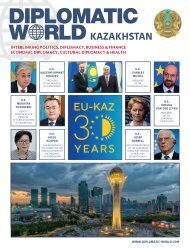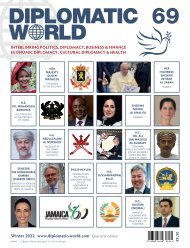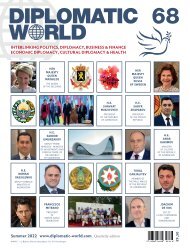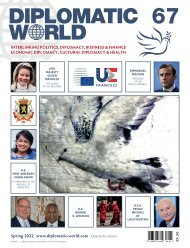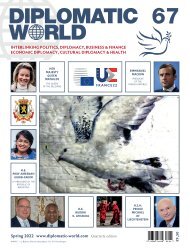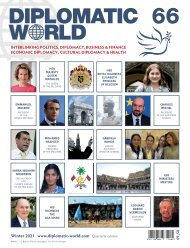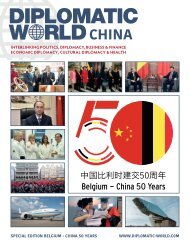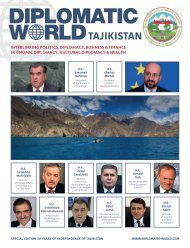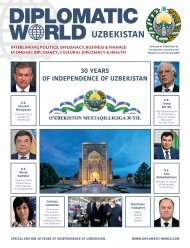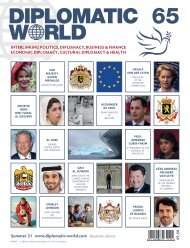Diplomatic World nummer 54
You also want an ePaper? Increase the reach of your titles
YUMPU automatically turns print PDFs into web optimized ePapers that Google loves.
38<br />
consolidate the new regional cooperation process. In the<br />
short term, there is dire need for a permanent forum for<br />
discussing these vital issues of Central Asia and would<br />
be representing a prerequisite step to the progress and<br />
development of the region.<br />
To ensure these plans are realised and successful, the<br />
Uzbek government and its regional partners need the<br />
support of international organizations. They will have<br />
to convince them to move from the current competition<br />
between great powers behind the different international<br />
organizations into a cooperative agenda based on a balance<br />
of the different sets of local interests. To achieve future<br />
stability and reduce geopolitical rivalries at Eurasian<br />
and global scale in a multipolar world, it is necessary to<br />
manage and contain the centrifugal forces in the world<br />
with a security architecture fully adapted to this new<br />
emerging multipolar world. A new doctrine of multilateral<br />
cooperation has to be initiated.<br />
THE GEOPOLITICAL STAKES FOR EUROPE<br />
AND EURASIA AS A WHOLE<br />
The success of Central Asian cooperation is equally<br />
important for the geopolitical interests of Europe. A quick<br />
look at the map (Alliances and Major Zones of Instability in<br />
a Multicentric <strong>World</strong>) illustrating the alliances in the <strong>World</strong><br />
and the major conflicts and potential instability zones<br />
reveals and underlines the striking realities of today’s world.<br />
First of all, the two major stability zones amid a world<br />
drifting towards instability, conflicts and growing<br />
uncertainty are the Euro-Atlantic space covered by NATO<br />
and the Eurasian area covered by the Shanghai Cooperation<br />
organization (SCO). On the margins of these two groupings,<br />
conflicts and security threats can endanger these “Islands<br />
of peace”. The danger of terrorism is already more and<br />
more present in these two zones and it is therefore a crucial<br />
objective to contain these fast growing internal security<br />
threats coming from the crisis zones.


